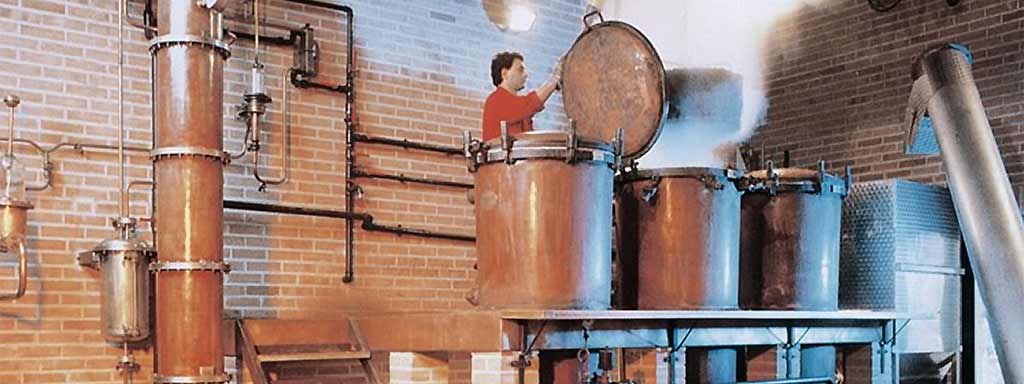
Grappa | The italian Liquor
This is the story about the career of a spirit. From hooch to elixir: grappa. Many suppliers freely drew the conclusion that frippery and design would be enough to pull the money out of the pockets of the trendy clientele.
The sales of the marc distillate have increased tenfold in this country in the last five years - a vertical start like nowhere else. The spirits industry is dismayed, and its finer representatives turn up their noses. How was it only possible that this country bumpkin could conquer in the shortest time a parquet, which was open to the noblest and oldest spirits only after generations?
The fans sweep aside any kind of conceit. They have long since chosen their grappa favorites. The fashionable drinkers murmur the names to themselves like secret tips. There are now thousands of varieties on the market. And no two containers are alike: The grappa boom has produced an unparalleled variety of bottles and keeps glassblowers busy all the way to the Far East. The grappa buyer's eyes sparkle and flicker. Sometimes he believes himself to be transported to a perfumery. Suspicious minds might even suspect that all the glassy gimmickry is only meant to conceal a poor product. - Gerardo [TS07/22]
| Grappa & Liqeur (All) | ||||||||||||||||||||||||||||||||||||||||||||||||||||||||||||||||||||||||||||||||||||||||||||||||||
| Distillerie Berta | Grappa | ||||||||||||||||||||||||||||||||||||||||||||||||||||||||||||||||||||||||||||||||||||||||||||||||||
| Distilleria Mazzetti | Grappa | Distilleria Pilzer | Grappa | |||||||||||||||||||||||||||||||||||||||||||||||||||||||||||||||||||||||||||||||||||||||||||||||||
| Distilleria Montanaro | Grappa | Distilleria Quaglia | Grappa | |||||||||||||||||||||||||||||||||||||||||||||||||||||||||||||||||||||||||||||||||||||||||||||||||
| Jannamaro | Amaro Abruzzese | ||||||||||||||||||||||||||||||||||||||||||||||||||||||||||||||||||||||||||||||||||||||||||||||||||
| Mirto San Martino | Limoncello | |||||||||||||||||||||||||||||||||||||||||||||||||||||||||||||||||||||||||||||||||||||||||||||||||
| Rosolio Liquor | ||||||||||||||||||||||||||||||||||||||||||||||||||||||||||||||||||||||||||||||||||||||||||||||||||

Grappa | The italian Liquor
Grappa was used for centuries as a panacea by the beggarly day laborers - against stomach ache , colds, rheumatism and above all: against the gloom of life. However, this consolation for the soul was usually a bad booze. The day laborers obtained it from the shabby remains of the grape. They boiled the pressed skins and seeds with water and distilled the broth. The wine itself remained reserved for the lordship - and the priest.
In principle, nothing has changed in the grappa extraction. The technology, however, has been refined immensely, especially in recent decades. Anyone who drank a grappa for the first time as an Italian tourist in the past would not recognize the former scrape today. It has become a fine lady, already too fine for some experts, and they connoisseurially declare that good genuine grappa must smell like an old sock or even taste like one. The grappa is and remains actually something coarse, even if it tastes fine and good.
The finest distillates are created by hand. In a small distillery, the boss can supervise the marc selection and the distillation process more carefully than is possible in factories. - Gerardo [TS07/22]
